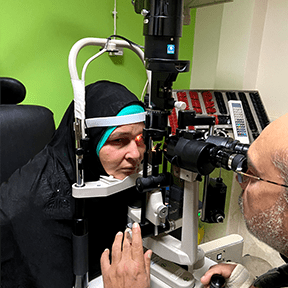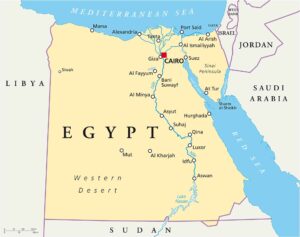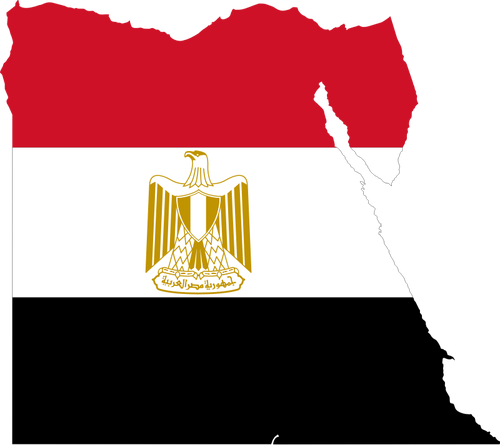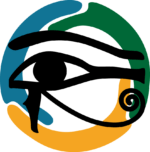Collaborative Vision is a not-for-profit organisation with the goal of reducing the prevalence of diseases that cause blindness. Our founders were driven to act after seeing the burden of diseases, such as Trachoma, in countries where access to healthcare is limited. Many of these diseases have long had cures and treatments available, and we believe that it is unacceptable that these diseases still persist today.

Our Purpose
We see our role as a bridge between people on the ground in Egypt and those wanting to help. We work on a patient by patient basis to provide surgeries and eye health education.
Mission
Collaborative Vision strives to restore sight and prevent blindness in Egypt. We will fundraise to pay for vision restoring surgeries, raise awareness of the issues of preventable blindness, and collaborate with local and international organizations and agencies to bring about long term change.
Vision
We envision a world where no one goes blind from preventable causes.
Values
Action: Prioritize targeted action that has a direct impact on local communities.
Collaboration: Work with all stakeholders to ensure culturally appropriate, long term and sustainable solutions.
Empowerment: Focus on giving people knowledge and tools to prevent blindness in their own communities.
Integrity: Approach work in an honest and ethical manner and are accountable to our donors and the communities in which we work.
Quality: Collaborate with certified professionals to ensure that the communities we work with receive care of the highest caliber.
Sustainability: Work to support local initiatives and organizations and avoid band aid solutions.
- To restore sight and help in the effort to eradicate preventable blindness worldwide.
- Raise funds to cover treatment, prevention, and research costs that target preventable blindness.
- Fund high quality, safe services that operate without discrimination.
- Collaborate with and support local stakeholders to ensure our efforts lead to long-term, culturally appropriate, and sustainable solutions.
- Coordinate with other agencies and organizations to support large scale changes.
- Raise awareness of preventable blinding diseases and provide accurate, representative information.
Where we work
We currently support work within Egypt, a country endemic with the disease. Three of our directors are Egyptian. Our link to Egypt allows us to connect on a more cultural level with the place in which we operate. Our connections and links within the country allow us to partner with people we know and trust to provide high quality care to patients.
Some countries have already led successful Trachoma eradication programs (eg. Morocco and Nepal), however others are still greatly affected by the disease. One of those countries is Egypt.
Egypt is a beautiful country mostly consisting of desert land. Its rich history and culture make it a very special place. A defining feature of the country is the Nile River. Approximately 95% of the population is concentrated in a narrow strip of fertile land provided by the river, which represents only about 5% of Egypt’s land area.
It is estimated that more than 11 million Egyptians are at risk of Trachoma, however the exact number of cases is unknown. In Egypt, there is a lack of research and mapping that makes it difficult to estimate the disease burden within the country. Only 4 out of 29 districts that are suspected to be endemic with the disease have been mapped. In those 4 districts alone, it was indicated in a study done in 2018 that there were 8712 people who required eyelid surgery (Amer et al). Without adequate mapping information it is difficult to carry out large projects such as mass antibiotic distributions that are crucial for disease eradication. The first large scale program occurred in May, 2019 where 300,000 Egyptians were given antibiotics.

We focus our efforts on Egypt because of great need for Trachoma work and also due to our ties to the country.
So why does this problem still persist in Egypt?
At this point, you may be wondering if this disease is easy to treat, why does it persist in such high numbers. To answer that you have to begin to understand the complexity of this issue. First, we want to acknowledge that there is fantastic work being carried out within the country at the moment; however, much more is needed.
Along with it being a medical issue, it is as much of both a social and political one. Understanding the culture in which the disease persists is critical for a successful program. Being able to understand the realities of these patients is impossible from our perspective in Canada and for this reason it is crucial for us to work with people from the communities to be a bridge between citizens and local medical professionals. It is important to focus on understanding the barriers faced by citizens in Trachoma endemic areas who wish to seek care. Mistrust is rampant as many patients hear stories of surgery going wrong. Diligent work is needed to avoid any situation that could lead to mistrust of medical professionals. These are just a few of the complexities that have to be carefully handled in order to lead to success.
If you are interested in learning more about these complexities you can read an article written by one of our directors about the lessons we learned on the first day of surgeries.


Our People
Our goal is to bring people together and connect our fundraising activities to the people in Egypt who are medically trained and knowledgeable about Trachoma. We are a family based organisation hoping to bridge the gap between donors and people unable to afford a life changing surgery.
